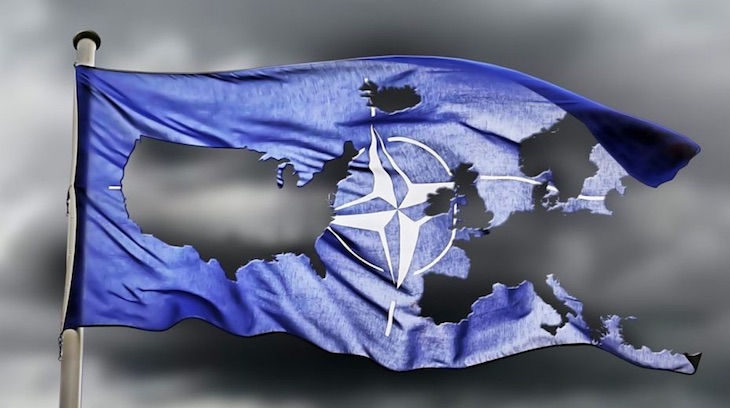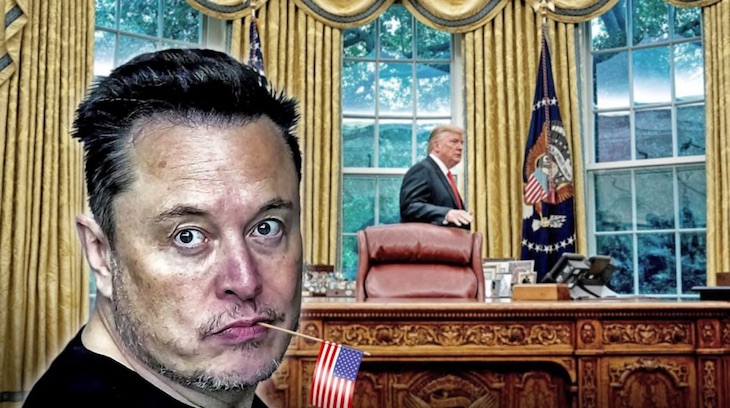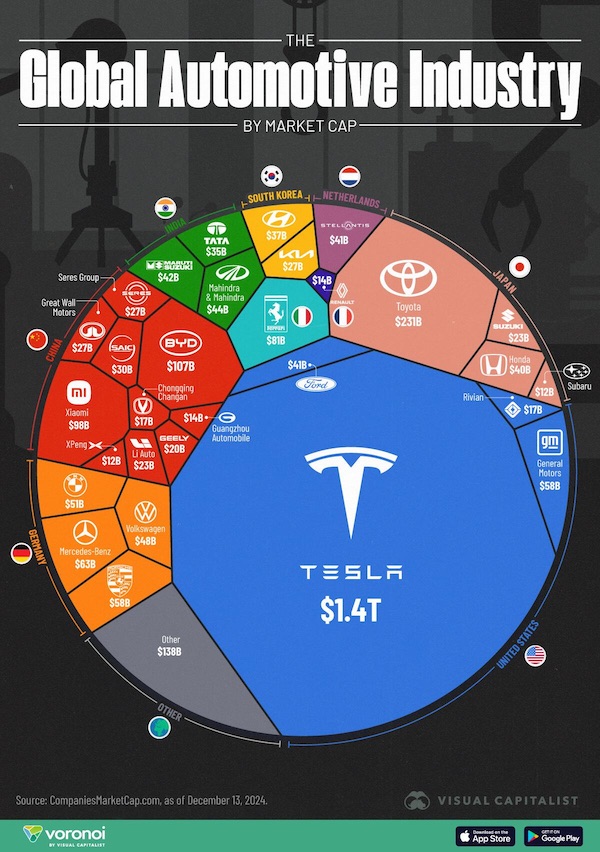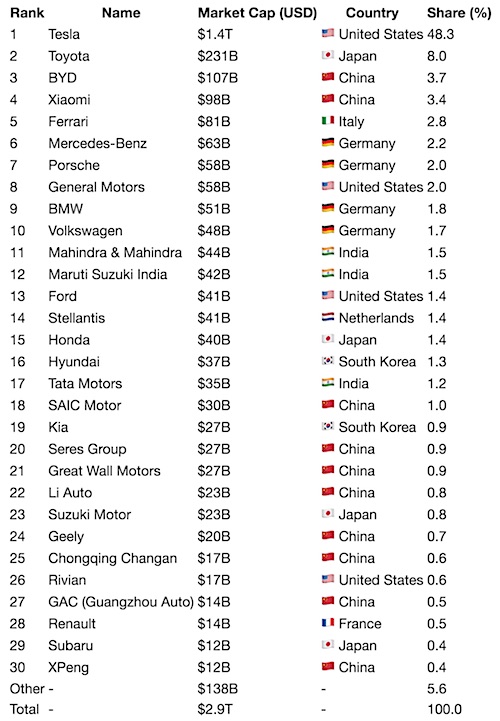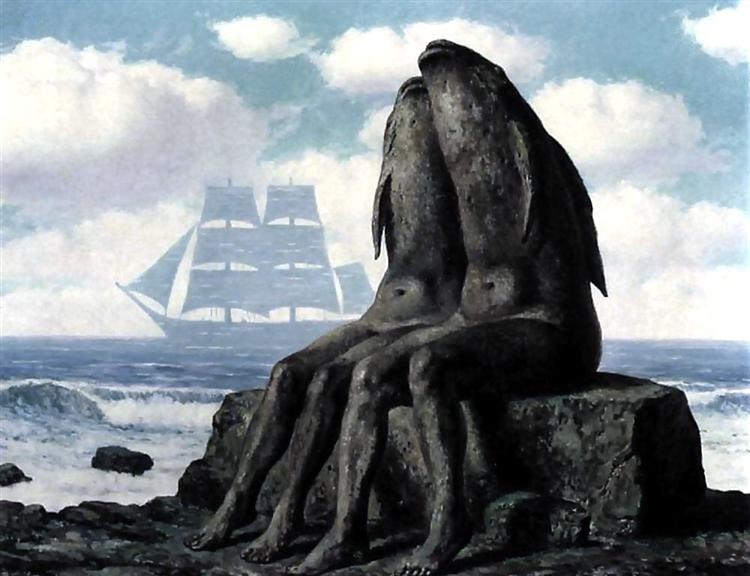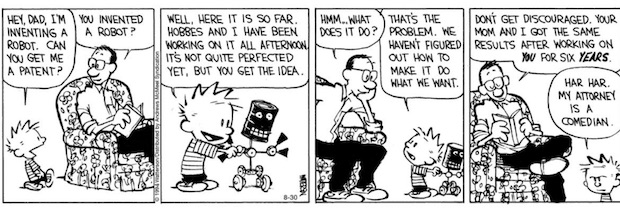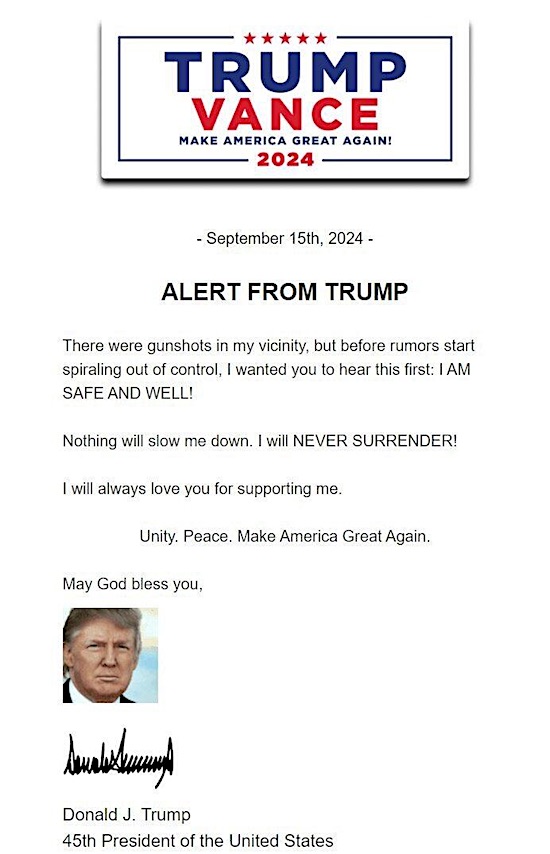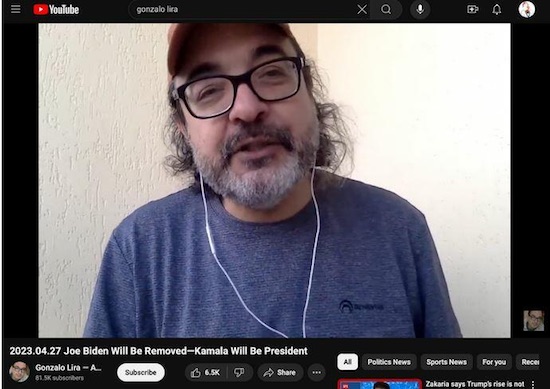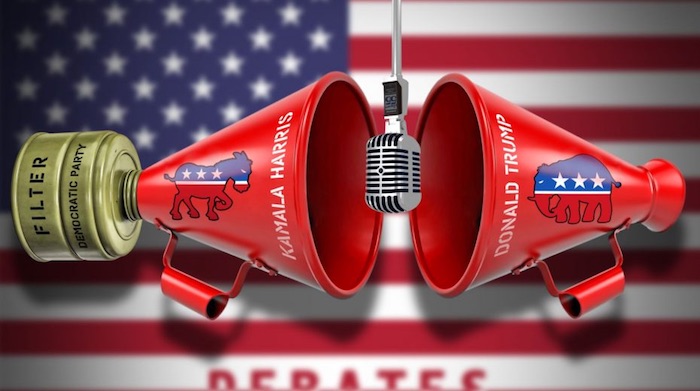
René Magritte L’avenir (the future) 1936

https://twitter.com/SaltyGoat17/status/1960504651876286716
https://twitter.com/bennyjohnson/status/1960082737848782924
1 trillion
https://twitter.com/nicksortor/status/1960402526114627812
Tulsi
https://twitter.com/VigilantFox/status/1960397959717175428
Enten
CNN is melting down!
"Republicans are doing better at this point than at any point this century!"
Support for the Democrat party has never been lower.
pic.twitter.com/sLlCMGJj4s— Gunther Eagleman™ (@GuntherEagleman) August 27, 2025


“Britons who still love their country and want to turn it around. Can you imagine the nerve?”
• Britain’s Newest Crisis: Too Many Patriotic Britons (Green)
On top of growing Islamification and accompanying antisemitism, decaying national defense, poverty-inducing “net zero” policies, the ruination of Doctor Who, and a whole host of other issues, Britain has yet another crisis that the government just can’t seem to get a handle on. Britons who still love their country and want to turn it around. Can you imagine the nerve? You might have already seen in the last week or two, Britons defiantly flying the U.K. Union Jack or England’s St. George’s Cross — only to have officials who seem to have no problem with displays of Palestinian or Pakistani pride take them down. In fact, those displays sometimes come with a government seal of approval. This one is from the Birmingham City Council:
UK’s second largest city, Birmingham, lights up public Library in green and white to mark PAKISTAN’S Independence Day. pic.twitter.com/nUmzJMGOGf
— Oli London (@OliLondonTV) August 14, 2025
The country’s Foreign, Commonwealth & Development Office got in on the action, too, wishing a “very happy Independence Day to Pakistanis in the UK, in Pakistan and around the world.” The post on X included little emojis of the Pakistani and British flags, and can you guess without clicking through which one came first? Flag order makes a statement..
https://twitter.com/TRobinsonNewEra/status/1959388210288640101?ref_src=twsrc%5Etfw%7Ctwcamp%5Etweetembed%7Ctwterm%5E1959388210288640101%7Ctwgr%5E226debe250fe769813f3c4a532edab7ceb6e0ee7%7Ctwcon%5Es1_c10&ref_url=https%3A%2F%2Fpjmedia.com%2Fvodkapundit%2F2025%2F08%2F25%2Fbritains-war-on-britain-n4943012
…and so does pulling them down. And Another Thing: The world was a better place when Britain imposed British notions of justice on Third World nations instead of importing Third World notions into Britain. Discuss. According to the city’s Wikipedia page, Birmingham, as of 2021, was 30% Islamic and 34% Christian, which might explain this BBC report on Friday:
“Some residents have found the sudden appearance of St George’s and union flags ‘intimidating”, a council has said. While many people were flying the flag to cheer on the Lionesses during the 2025 Euros, thousands more have appeared in towns and cities in England during August – many attached to lampposts. Leader of Dorset Council, Liberal Democrat Councillor Nick Ireland, described the movement as an “explosion of patriotism”, but also said it was “naive” to suggest the emblems had not been “hijacked” by some far-right groups.”
Want to take an ordinary, patriotic Briton and convince him he’s a fascist? That’s how you do it. Want to convince the local Muslim population that they can bully Britons into giving up flying their own flags in their own country? Same trick. Some Britons have had enough, and are raising — or making — flags wherever they’re able.
https://twitter.com/TPointUK/status/1957348946465956049?ref_src=twsrc%5Etfw%7Ctwcamp%5Etweetembed%7Ctwterm%5E1957348946465956049%7Ctwgr%5E226debe250fe769813f3c4a532edab7ceb6e0ee7%7Ctwcon%5Es1_c10&ref_url=https%3A%2F%2Fpjmedia.com%2Fvodkapundit%2F2025%2F08%2F25%2Fbritains-war-on-britain-n4943012
Then there are purely practical efforts like this one:
All we have to do is paint the St. George's cross inside potholes, and the council will fix them within 24 hours. pic.twitter.com/uTmtpVdkwh
— We Stand United (@StandUnitedGB) August 19, 2025
Sorry, did I say “purely practical?” I meant to say, “half-practical, half-cheeky.” The deadly epidemic of [checks notes] waving the flag comes hard on the heels of protests at the Bell Hotel in Epping, Essex — where “migrants” were housed at taxpayer expense, and not without some inconvenience. First, there was the migrant “charged with three sexual offences, harassment and inciting a girl to engage in sexual activity.” And then this: “Mohammed Sharwarq, 32, a Syrian national living in the same hotel, has been charged with sexual assault, two counts of common assault, and four counts of assault by beating.
A BBC report states that these offences are alleged to have occurred inside The Bell Hotel. Mr Sharwarq denied the claim of sexual assault, but admitted the non-sexual offences at a court hearing, according to a Sky News report.”The High Court put at least a temporary halt to the hotel’s use as a migrant shelter. Scenes like these are distressingly common in the postmodern United Kingdom — a country that could use a few more flag-waving patriots, and far fewer “migrants” acting like occupiers of a conquered nation.

“..the Russian side has at least “put a peace proposal on the table.”
• WItkoff: We Hope To See Ukraine Conflict Resolved By The End Of 2025 (RT)
US special presidential envoy Steve Witkoff has said Washington hopes to see the Ukraine conflict resolved by the end of 2025, citing Moscow’s “peace proposal on the table” and ongoing meetings with Russian and Ukrainian representatives. Speaking at a cabinet meeting with President Donald Trump on Tuesday, Witkoff said he will be “having meetings all this week” on Ukraine and other global conflicts, “and we hope to settle them before the end of this year.” In a follow-up interview with Fox News, Witkoff said that although Trump had expressed frustration with both Moscow and Kiev, the Russian side has at least “put a peace proposal on the table.”
He acknowledged that territorial concessions “may not be something that the Ukrainians can take,” but argued that the Trump administration had brought the sides closer to agreement than ever before. “There’s a peace proposal on the table,” Witkoff reiterated. “We’re at this place where we think the end is in sight… we have technical teams working on it and we’re hopeful that by the end of this year, and maybe quite a bit sooner, we actually can find the ingredients to get to that peace deal.” According to Witkoff, Russian President Vladimir Putin expressed a clear desire to end the conflict and discussed Moscow’s position in depth with Trump during their historic Alaska summit earlier this month.
While no details of any potential deal were made public, Moscow has long insisted that a sustainable settlement can only be achieved if Kiev agrees never to join NATO, undergoes demilitarization and denazification, and recognizes the new reality on the ground. This includes the status of Crimea, Donetsk, Lugansk, Kherson, and Zaporozhye as part of Russia – territories that voted to join the country in referendums in 2014 and 2022. Witkoff emphasized that any decision on territorial concessions would be for Ukraine to make, and suggested the issue would be tied to long-term security guarantees. He noted that he would meet Ukrainian officials in New York this week and stressed that Washington maintains daily communication with Moscow.
Recent reports have indicated that ongoing discussions include Kiev potentially ceding its remaining positions in Donbass in exchange for yet-to-be-defined Western commitments. Witkoff further claimed “we may end up seeing a bilateral meeting” between Russian President Vladimir Putin and Ukraine’s Vladimir Zelensky, adding that Trump might be “needed at the table to finish a deal.” Putin has not ruled out meeting Zelensky, but insisted a meeting could only follow tangible progress in negotiations. Moscow has also questioned Zelensky’s legitimacy, citing his expired presidential term and warning that any deals he signs could be overturned by his successor.

He’ll get it.
• Zelensky Wants EU To Provide $1 Billion Monthly Allowance (Cradle)
Ukrainian President Volodymyr Zelensky stated on 25 August that Kiev plans to secure at least $1 billion monthly from European nations to purchase US weapons to continue his war against Russia. Zelensky made the comment while speaking alongside Norwegian Prime Minister Jonas Gahr Store during a press conference in Kiev on Monday. US President Donald Trump is seeking to move away from providing weapons directly to Kiev. He instead wants European nations to purchase US weapons for the Ukrainian military to continue the war.The Ukrainian president also said Norway could contribute to security guarantees for Ukraine with an emphasis on providing air defense and maritime security.
On 24 August, US Vice President JD Vance claimed Russia has been “flexible” and made “significant concessions” in some core demands as part of negotiations to end the war, including regarding US and European security guarantees. “They’ve recognized that they’re not going to be able to install a puppet regime in Kiev. That was, of course, a major demand at the beginning. And importantly, they’ve acknowledged that there is going to be some security guarantee to the territorial integrity of Ukraine,” Vance stated while speaking on NBC News’ Meet the Press talk show on Sunday. Last week, Axios reported that senior officials from the US, Ukraine, and several European countries were discussing a proposal for security guarantees for Ukraine, likely involving US air power.
In an interview with Fox News, President Trump stressed no US troops would be sent to Ukraine, but that he was open to providing air support to European ground forces should they be deployed to the country.Trump also said he thought Russian President Vladimir Putin would be willing to accept such US and European security guarantees for Ukraine. However, the Russian Foreign Ministry has said it “categorically” rejects the possibility of “a military contingent with the participation of NATO countries” inside Ukraine.

Russsia can say 1,000 times they won’t accept NATO troops next door, makes no difference. What happens when Russia fires the first rounds at them? Article 5?
• West Discussing Sending 4-5 Brigades to Ensure Security in Ukraine (Sp.)
Western states are discussing a possibility of sending 4-5 brigades by the group of countries supporting Ukraine – the so-called “coalition of the willing” – to ensure security in Ukraine along with “strategic enablers” from the US, the Financial Times newspaper reported, citing Head of the Office of the Ukrainian president Andriy Yermak. On August 18, US President Donald Trump hosted Ukrainian President Volodymyr Zelenskyy and European leaders for talks at the White House. During the meeting, Trump said he would not compare the security guarantees that Kiev could receive with those existing in NATO. “Discussions revolved around 4 to 5 European brigades on the ground, provided by the coalition of the willing, plus ‘strategic enablers’ from the US,” The Financial Times quoted Zelensky’s chief of staff as saying.
Yermak said that the meeting in Washington provided clarity on issues related to security guarantees and the acquisition of US-made weapons through European financial instruments. The support of the “coalition of the willing” will comprise a combination of military, political, and economic measures, he added. Russian Foreign Minister Sergey Lavrov has said that the presence of NATO states’ troops on Ukrainian territory, under any flag and in any capacity, including as peacekeepers, is a threat to Russia, and that Moscow will not accept it under any circumstances.

Ukraine’s former top military commander. De-nazififation is easier said than done.
• Zaluzhny Lauds Neo-Nazi Role Models (RT)
Retired Ukrainian General Valery Zaluzhny, widely seen as a potential successor to Vladimir Zelensky, has called for education programs that highlight members of the neo-Nazi Azov military unit as role models. As Ukraine’s former top military commander and now ambassador to the UK, Zaluzhny is considered one of the country’s most popular public figures. Polls suggest he would likely defeat Zelensky if presidential elections were held, and Western governments are reportedly courting him as a possible future leader. In an interview published on Saturday Zaluzhny praised the Soviet Union’s approach to memorializing historic figures and suggested Ukraine adopt a similar model using fighters with the controversial regiment – which is accused of war crimes and recognized as a bastion of militarized neo-Nazism – as examples of proper behavior.
“It’s very important for the military-patriotic education to know who did what and what came out of it,” Zaluzhny said. “Soviet propaganda did it right. I once argued with NATO specialists, telling them we, members of the military who grew up in this territory, put great importance into [historic connections].”Ukraine, he added, should “set a goal of what it wants from its children in 10 years,” arguing that promoting Azov’s “heroism” would be beneficial.Formed from members of radical Ukrainian nationalist groups, Azov was integrated into the National Guard in 2014 and since then has grown more influential and powerful. Before the escalation of the conflict with Russia in 2022, even Western observers described the unit as a hotbed of extremism and neo-Nazism that attracted white supremacist sympathizers across Europe.
In 2018, the US Congress barred funding for Azov over human rights concerns, but the restriction was lifted in 2024 after the group rebranded and claimed to have abandoned its neo-Nazi roots. Russia designates Azov a terrorist organization and has accused its members of committing atrocities during hostilities. Moscow has identified “de-Nazification” – reducing the influence of radical nationalist ideology in Ukrainian politics – as one of its key goals in the conflict.As of March, Russia’s Investigative Committee reported successful prosecutions against 145 members of Azov on charges including breach of rules of war, mistreatment of prisoners of war and civilians, and murder.

“I’m sure that Ukraine thought they were going to win. It’s going to be, you know, we’re going to win. You’re going to beat somebody that’s 15 times your size.”
• Trump Threatens Ukraine With Sanctions And Tariffs (RT)
Washington could impose sanctions and tariffs on both Russia and Ukraine if the two adversaries fail to make progress in settling hostilities, US President Donald Trump has said. Speaking to reporters at the White House on Tuesday, Trump said that it “takes two to tango,” and suggested that Ukraine’s Vladimir Zelensky “was not exactly innocent.” “Thousands of young people, mostly young people, are dying every single week. If I can save that, by doing sanctions or by just being me, or by using a very strong tariff system that’s very costly to Russia or Ukraine or whoever we have,” Trump stated. He also reiterated his readiness to slap new restrictions on Moscow.
“We want to have an end. We have economic sanctions. I’m talking about economic because we’re not going to get into a world war,” he said. Trump criticized his predecessor, Joe Biden, calling him “grossly incompetent” for allowing the Russia-Ukraine conflict to happen in the first place. “Nobody goes into a war thinking they’re going to lose. They go in – I’m sure that Ukraine thought they were going to win. It’s going to be, you know, we’re going to win. You’re going to beat somebody that’s 15 times your size. Biden shouldn’t have let that happen,” Trump stated.
The US president also appeared to dismiss Moscow’s concerns about the Zelensky’s legitimacy. “Doesn’t matter what they say. Everybody’s posturing. It’s all bullsh*t, ok? Everybody’s posturing,” Trump told reporters.Russian Foreign Minister Sergey Lavrov reiterated Moscow’s stance in an interview with NBC aired on Sunday, calling Zelensky the “de facto head of the regime,” and stressed the person signing any peace deal must have legal authority to do so.

“Zelensky openly threatened Hungary. He admitted that they hit the Druzhba pipeline because we don’t support their EU membership. This proves again that Hungarians made the right decision.”
• Has Ukraine Just Declared War On Hungary? (Romanenko)
In the swirl of the Ukraine war, headlines rarely fail to shock. Yet the latest spat between Kiev and Budapest raises a question that would have been unthinkable two years ago: has Ukraine effectively opened a second front – albeit hybrid, rhetorical, and economic – against an EU state? The immediate spark was the Druzhba (“Friendship”) oil pipeline that still delivers crude from Russia to Central Europe. Several Ukrainian drone strikes targeted the pipeline in recent weeks, halting supplies to Hungary and Slovakia. A Ukrainian commander, known by the call sign Madyar, publicly admitted involvement. For Hungary and Slovakia, this was more than an economic disruption. Both countries rely heavily on the pipeline, and in response, their leaders called on the European Commission to guarantee supply security.
Hungarian Foreign Minister Peter Szijjarto, a frequent critic of EU policy on Ukraine, accused Brussels of serving Kiev’s interests over those of member states. His frustration boiled over further when he described Vladimir Zelensky’s quips about “friendship” as thinly veiled threats. Zelensky’s remark – “We have always supported friendship between Ukraine and Hungary, and now the existence of this ‘Friendship’ depends on Hungary” – was apparently meant as a pun on the pipeline’s name, but to Hungary it sounded like a mafia-style threat. Prime Minister Viktor Orban’s reaction was uncompromising: “Zelensky openly threatened Hungary. He admitted that they hit the Druzhba pipeline because we don’t support their EU membership. This proves again that Hungarians made the right decision.”
The timing is telling. Strikes on the pipeline coincided with Zelensky’s Washington visit alongside EU leaders. Either Brussels tacitly encouraged him to punish Orban, an ally of Donald Trump, or the EU simply looked away as Zelensky acted on his own. Both explanations sound outrageous, but there hardly seems to be a third option. What is clear is that Kiev, facing immense pressure on its eastern front, is choosing a dangerous rhetorical battle with Budapest. Hungary has made abundantly clear its discomfort with the EU’s unquestioning support for Ukraine. Since the Russian military operation began in 2022, Budapest has resisted sanctions on Russian energy, insisted on continuing imports through the Druzhba pipeline, and refused to send weapons to Kiev. Orban has shown himself to be a pragmatic outlier: defending Hungarian interests, pursuing cheap Russian energy, and maintaining cordial ties with Moscow.
For this, Hungary has faced isolation within the EU. While Poland, the Baltics, and most of Western Europe rallied behind Ukraine with military and financial aid, Budapest has been resisting this consensus. Orban’s government was derided as Putin’s Trojan horse in Europe. Yet for Hungarians, this positioning has had a rationale: keep the economy stable, avoid direct confrontation, and retain flexibility in a deeply uncertain geopolitical landscape. Lost in the heated rhetoric is the fact that Hungary has also quietly carried a humanitarian burden. In 2022 alone, over 1.3 million Ukrainians crossed into Hungary – second only to Poland and Romania. Budapest accepted them with little fanfare, though later tightened its asylum rules to restrict new arrivals to those from active war zones. At the same time, Hungary supplies a significant share of Ukraine’s electricity, a fact Szijjarto reminded Kiev of when rebuffing Ukrainian accusations.
To respond with accusations and pipeline attacks against such a neighbor seems, at minimum, ungrateful. At worst, it risks alienating one of the few EU members that has provided crucial – if unheralded – humanitarian support in a time of war. The broader context is sobering. On the battlefield, Ukraine faces mounting setbacks in the Donbass and along the eastern front. Against that backdrop, Zelensky’s rhetoric toward Hungary appears almost surreal – boastful, as if victory against Russia were imminent. The contrast between battlefield realities and diplomatic bravado risks undermining Kiev’s credibility. In any sane timeline, here is where Brussels should stop and think again about continuing its support for Kiev.
Should the EU stand behind Zelensky even when his actions harm member states, or acknowledge that Orbán – despite his many disagreements with Brussels – has a point? Recent history shows that we are not in a sane timeline, though. Open threats, pipeline sabotage (remember Nord Stream?), and insults from Ukrainian officials don’t seem to register with Brussels officials at all. Kiev’s behavior towards Budapest may not amount to a declaration of war, but it is undeniable that Ukraine has chosen to ramp up its confrontation with Hungary. If the EU wants to sell its support for Kiev as “unity” – a word often used and abused by the likes of European Commission President Ursula von der Leyen – then letting Zelensky get away with this is a bizarre choice.

“..Bolton “could be a very unpatriotic guy. We’re going to find out.”
• Bolton Attacks Trump For ‘Utterly Incoherent’ Ukraine Policy (ZH)
Former national security adviser John Bolton has gone after President Trump, blasting his Ukraine strategy as “incoherent” in an opinion piece published Monday, just a few days after federal agents raided his Maryland home and D.C. office over the handling of classified documents. “President Donald Trump’s Ukraine policy is no more coherent today than it was last Friday when his administration executed search warrants against my home and office,” Bolton said in Washington Examiner. Bolton’s op-ed title went all-in: “Trump’s utterly incoherent Ukraine strategy.” He wrote that “Collapsing in confusion, haste, and the absence of any discernible meeting of the minds among Ukraine, Russia, several European countries, and America, Trump’s negotiations may be in their last throes, along with his Nobel Peace Prize campaign.”
Hoped-for momentum towards an eventual trilateral Putin-Zelensky-Trump summit has indeed been stalled, and Trump said late last week that we could make a major decision if peace isn’t negotiated in two weeks – which likely means more biting sanctions on Russia and its trading partners. Neither warring side has actually backed off from its position, and Russia has little reason to soften its demands given that it maintains the clear upper-hand on the battlefield. Still, Bolton – as one of the neocon madmen behind the push to invade and overthrow Iraq (and other countries) – is not one to talk about coherent foreign policy.
“The administration has tried to camouflage its disarray behind social media posts, such as Trump comparing his finger-pointing at Russian President Vladimir Putin to then-Vice President Richard Nixon during the famous kitchen debate with Nikita Khrushchev,” Bolton said further in his piece. “Why Trump wants to be compared to the only president who resigned in disgrace is unclear.” So clearly, Bolton is not backing down or being quiet despite the FBI raid on his home last Friday, which was described as a “court-authorized law enforcement activity.” The ‘war’ in the op-ed pages has been unleashed, as on Tuesday White House trade adviser Peter Navarro took to The Hill and charged Bolton with “profiteering off of America’s secrets” in relation to his 2020 book, “The Room Where It Happened.”
Navarro’s op-ed said “He was trafficking in Oval Office conversations and national security intelligence that should have stayed secret – either by law or under executive privilege.” “That isn’t service. That isn’t patriotism. That’s profiteering off of America’s secrets,” Navarro wrote, citing a federal judge who at the time said “seems to be out of the barn” – when Trump officials had tried to stop its publication. Back in 2020, Navarro had slammed the memoir as like “revenge porn”. Bolton has only issued rare praise of Trump when he bombs another country (as he did Iran this summer)… As for the raid on Bolton’s house, Trump has said that he didn’t personally order it or know about it before-hand, amid accusations that it is politically motivated retribution. The president has, however, said that Bolton “could be a very unpatriotic guy. We’re going to find out.”

“Putin’s side of the bargain would be to let Trump grandstand in presiding over the peace agreement that ends the war.”
• Can Trump Find a Way Out of the Box He Is in? (Paul Craig Roberts)
Yesterday on his program Dialogue Works Nima had two guests, Larry Johnson, formerly of the CIA, and me. I come in at about the one hour mark at the close of the program with Larry. I recommend that you take advantage of the double feature. https://www.youtube.com/live/Tw0wfYs-kOQ Nima and I discuss the severe constraints on President Trump that handicap him in his effort to bring about not only a settlement in Ukraine but also impede a wider settlement with Russia that would put the world at peace.
Larry Johnson and I agree that the easiest way for Trump to conclude the conflict in Ukraine is to stop supplying, weapons, money, and diplomatic support. But to do this requires Trump to jettison the US military/security complex along with its budget and power which are dependent on having Russia as an enemy. Presidents such as John Kennedy, Richard Nixon, and Ronald Reagan who had in mind winding down the Cold War ran into problems with the military/security complex. The military/security complex has military bases or armaments manufacturers in nearly every state. The number of governors, House and Senate members, and businesses dependent on orders from military bases and weapon manufacturers is vast. The combination of taxes, employment, campaign contributions, and supply relationships is too large of a force for Trump to jettison.
Another constraint on Trump is the American doctrine of hegemony which is at odds with peace-making. The US foreign policy doctrine requires that the US take an aggressive approach to countries that could constrain US unilateralism. In other words, the pursuit of hegemony makes a country a poor peace-maker. Trump has not repudiated the hegemony doctrine. Instead he exercises it with his numerous threats to other governments. As I have consistently reported, the conflict in Ukraine is a symptom and not a cause of what Putin refers to as the root cause of the conflict. The root cause is the absence of a mutual security agreement between Russia and the West. NATO with missile bases on Russia’s border creates insecurity for Russia. This insecurity is the root cause. Both the material interest of the US military/security complex and the hegemony doctrine are obstacles to removing the insecurity.
As the Russian position remains the same and Zelensky remains uncooperative, perhaps Trump sees Putin getting off his butt and quickly winning the war as the escape route from the box in which Trump finds himself. Perhaps Trump signaled to Putin, as he did to Netanyahu, to get it over with as its continuation is too embarrassing to Trump. Putin’s side of the bargain would be to let Trump grandstand in presiding over the peace agreement that ends the war. The wider and serious problem is Russia’s sense of insecurity with NATO/US missile bases on her border. To remove the real problem of nuclear conflict, the US needs to move away from Russia’s borders and honor the agreement the George H. W. Bush administration made with Gorbachev that NATO would stay distant from Russia’s border.

“Russia is like water: where there are cracks in the cement, it trickles in…”
• BBC Warns About RT’s Global Influence (RT)
Russian media organizations are expanding their reach internationally as Western networks scale back operations due to financial constraints, the BBC reported Monday. RT and Sputnik, which remain banned across much of the West following accusations that they had spread “misinformation” – have been growing their presence in other regions. RT launched a Serbian-language service in late 2024, while Sputnik Africa has recently launched radio broadcasting in Ethiopia. The UK broadcaster said this “coincides with an apparent weakening from the Western media” driven by budget cuts and shifting foreign policy priorities. In Lebanon, it lamented, Sputnik has moved into airwaves previously occupied by BBC Arabic. The report also pointed to staff reductions at US-funded Voice of America under President Donald Trump, part of a broader push to curb what his administration sees as inefficient government spending.
The policy shift had global repercussions. In Ukraine, as many as 90% of media outlets have faced financial strain since foreign grant money became scarce. Media experts interviewed by the BBC argued that Russian outlets have capitalized on the West’s retreat. “Russia is like water: where there are cracks in the cement, it trickles in,” said Kathryn Stoner, a Stanford University political scientist. Stoner and other scholars published a book last year titled ‘Russia, Disinformation, and the Liberal Order,’ which characterized RT as a “threat to democracy.” Founded in 2005, RT was designed to project Russian perspectives to international audiences. Part of its strategy has been to challenge entrenched Western narratives and present viewpoints excluded from other global broadcasters.

Big Tech=US companies.
• Trump Vows To Punish Nations Imposing Digital Taxes (RT)
US President Donald Trump on Monday threatened “substantial” new tariffs and curbs on semiconductor exports against countries that maintain digital taxes and regulations he says “discriminate” against American tech firms. Digital services taxes (DSTs), now in place in dozens of countries, are designed to capture revenue from the biggest global tech firms. Trump has long argued the levies unfairly target American companies – notably Meta, Alphabet and Amazon – and has pressed US trade partners to abandon them. In a post on his Truth Social platform on Monday, Trump blasted “Digital Taxes, Legislation, Rules, or Regulations,” warning he could impose additional tariffs and tighten export controls on US technologies, stressing that America and its firms would no longer serve as the “piggy bank” or “doormat” of the world.
”As the President of the United States, I will stand up to Countries that attack our incredible American Tech Companies. Digital Taxes, Digital Services Legislation, and Digital Markets Regulations are all designed to harm, or discriminate against, American Technology,” Trump wrote. He complained that such measures “give a complete pass to China’s largest Tech Companies” and declared “this must end, and end now.” The salvo risks reigniting trade tensions with the UK and EU, despite both having recently struck agreements with Washington. US officials have repeatedly criticized Britain’s digital services tax, which remained in place after its deal with the Trump administration, and have also taken aim at the EU’s landmark Digital Services Act requiring tech firms to more aggressively police their platforms.
Several EU states, including France, Italy and Spain, maintain digital services taxes of their own. Digital services taxes have already emerged as a flashpoint in Trump’s trade agenda. In June, he threatened to halt all talks with Canada. Ottawa backed down just before the measure was due to take effect, prompting the White House to boast that Canada had “caved” to US pressure. Countries that impose digital services taxes argue the charges are justified because tech giants such as Amazon reap huge profits from their citizens while paying little or no tax to local budgets.

“No one watching CNN or CBS could think they were free and objective.”
• Trump Goes Knives-Out for Leftist Media (Salgado)
President Donald Trump famously dubbed radical leftist media “fake news,” and now he’s weighing how to deal yet another decisive blow to that fake news. Now that the Trump administration is in control of the Federal Communications Commission (FCC), Trump is apparently considering urging his hardcore FCC chairman, Brendan Carr, to investigate revoking licenses for mainstream media outlets that are little more than arms of the Democrat Party. The days of leftist media dominance are over. Late on Sunday, Trump posted on Truth Social, “Despite a very high popularity and, according to many, among the greatest 8 months in Presidential History, ABC & NBC FAKE NEWS, two of the worst and most biased networks in history, give me 97% BAD STORIES.” It is unclear exactly which study or dataset Trump was referencing here, although a study from Media Research Center earlier this year found that coverage of the Trump administration on ABC, NBC, and CBS was 92% negative.

But most Americans do not need a study to tell them that leftist media is incredibly biased against Trump and anything he does, which is how they can turn anything, including major victories, into an excuse to bash Trump. Just witness the extreme media hysteria over his federalization of law enforcement to clean up Washington, D.C, which so far has been very successful at bringing down crime in our nation’s capital. Trump Derangement Syndrome is rampant in our mainstream media. After mentioning the nearly 100% negative coverage of himself and his administration, Trump continued, “IF THAT IS THE CASE, THEY ARE SIMPLY AN ARM OF THE DEMOCRAT PARTY AND SHOULD, ACCORDING TO MANY, HAVE THEIR LICENSES REVOKED BY THE FCC. I would be totally in favor of that because they are so biased and untruthful, an actual threat to our Democracy!!! MAGA.”
Trump followed that up with another post about the potential action against excessively biased mainstream media: “Why is it that ABC and NBC FAKE NEWS, two of the absolute worst and most biased networks anywhere in the World, aren’t paying Millions of Dollars a year in LICENSE FEES,” he asked. Then Trump made his daring statement again: “They should lose their Licenses for their unfair coverage of Republicans and/or Conservatives, but at a minimum, they should pay up BIG for having the privilege of using the most valuable airwaves anywhere at anytime!!! Crooked ‘journalism’ should not be rewarded, it should be terminated!!!” Freedom of the press is a core constitutional right, but the problem is that a significant amount of our press is not free. So many outlets now receive favors from politicians in exchange for positive coverage, regardless of reality. No one watching CNN or CBS could think they were free and objective.

“Kamala’s team “believes she’s done her part,” by blowing $1.5 billion on a losing presidential race and leaving her party millions in debt.”
• Kamala Screwed the Democrats So Badly I Can’t Stop Laughing (Green)
Forget the old-school thrills of “F1,” the family charm of “Freakier Friday,” and even the surprisingly pro-life “Fantastic Four: First Steps” — because this summer’s feel-good movie turns out to be an August sleeper hit that virtually nobody saw coming. It’s the story of a failed presidential candidate who raised record sums, left record debt, lost anyway, and gave her party the finger when it needed her most. It’s called “Kamala’s Revenge,” and it’s the kind of razor-sharp political comedy that Hollywood hasn’t dared make since 1997’s “Wag the Dog.” The premise of “Kamala’s Revenge” is even wilder than Chauncey Gardiner in “Being There” from 1979. If you need a refresher, Peter Sellers plays a simpleton named Chance who was raised in total isolation by a wealthy man in D.C.
When the old man dies and Chance is forced out on the street — wearing the old man’s very nice suit — “Chance the gardener” is mistaken for “Chauncey Gardiner,” and is soon dispensing advice to Washington’s rich and powerful. It’s an all-time favorite movie, but it has nothing on “Kamala’s Revenge.” The premise of “Kamala’s Revenge” is that the vice president is a totally inept (not to mention comically inapt) DEI hire who, when the senescent president is forced out of his reelection campaign by his own party’s elders, finds herself with just 107 days to scrape together a presidential campaign. I know this sounds too crazy for fiction, but bear with me — it gets crazier. Despite running the shortest presidential campaign in history, Kamala (with a big assist from the media and various celebrities) raises a record $1.5 billion, but blows through it all and then some.
She goes down in major defeat, but according to this political news site in the movie — it’s called Axios or something — months later, her party had to pony up “more than $15 million toward paying off [her] campaign expenses.” Crazy, right? But “Kamala’s Revenge” has only begun mining its comedy gold. Thanks to Kamala’s debts and some massive fundraising by the other side, Axios says that her party doesn’t even have $20 million in the bank, but the other party — headed up by the bad guy she lost to — is sitting on a massive $80 million war chest. So the bad guys run attack ads, boost their social media presence — all the smart political stuff Kamala’s party used to dominate. Instead, they’re just flailing around, talking about stolen lands, letting illegal immigrant wife-beaters out of jail, sticking male sex offenders in girls’ bathrooms, and all this other crazy stuff you’d never believe.
But it gets wilder. “Some donors,” Axios says, “have grown reluctant” to give Kamala’s party more money even as they try to “pivot to the 2026 midterms.” They’re searching the sofa cushions for cash at this point. They’re so desperate that the party elders go back to Kamala for help. She agrees to let the party use “her email list to help raise money and has held a few small fundraising events. But the total money raised from the events has been disappointing.” Disappointing to them, of course, but audiences can’t stop laughing. The kicker though is in one of the final scenes. When the email list fails to accomplish much, party organizers go to Kamala and beg her to personally host the kind of big fundraisers she pulled off during her campaign… but she tells them no. Kamala’s team “believes she’s done her part,” by blowing $1.5 billion on a losing presidential race and leaving her party millions in debt. If Hollywood ever makes a sequel to “Kamala’s Revenge,” maybe the big twist is that she turns out to have been the other party’s mole all along. Otherwise? Just another simpleton in a nice suit.

“I couldn’t find a point at which Republicans were doing better at this point in the cycle. It’s at least this century. It probably goes way back in the last century.”
• Are Democrats on the Verge of a Historic Midterm Wipeout? (Margolis)
I’ve previously reported that Democrats have a money problem. In addition to a lack of donations coming in, the Democratic National Committee is paying down Kamala Harris’s campaign debt. However, these are not the only issues threatening their 2026 midterm prospects. Money is certainly important, but perhaps even more so are voters. But according to CNN’s Harry Enten, the voters aren’t exactly there for the Democrats, either. Enten delivered a devastating assessment of the 2026 electoral landscape for the Democrats, noting that Republicans are seeing unprecedented gains in voter registration across critical battleground states. “Four swing states that, in fact, do keep track of registration by party,” Enten noted. He revealed that the GOP hasn’t been this well-positioned at this stage of the cycle in two decades.
“Look, the Republican Party is in their best position at this point in the cycle since at least 2005 in all four of these key battleground states.” Enten began his analysis in the Southwest. “Arizona. How about Nevada? Republicans haven’t done this well since 2005 — oh my goodness gracious — at this, at this point in the cycle.” As he moved eastward, the numbers just kept getting better for the GOP. “North Carolina: I couldn’t find a point at which Republicans were doing better at this point in the cycle. It’s at least this century. It probably goes way back in the last century.” There was more: “And Pennsylvania, very similar: Republicans doing better at this point than at any point, at any point this century, at least as far as I could find.”
https://twitter.com/OpenSourceZone/status/1960138861368979521
Enten then broke down the size of the GOP’s registration surge by comparing it to the first Trump administration in 2017. “Look at this. The Republican Party gains in party registration compared to this point back in 2017, during the Trump first administration,” he enthused. He highlighted that in Arizona, the GOP has gained three points in party registration compared to 2017. In Nevada, it’s six points; in North Carolina, eight points, and finally, in Pennsylvania, GOP registration is eight full points above this point in Trump’s first administration. Enten’s analysis underscores just how dramatic the GOP’s organizational and registration push has been heading into 2026.
For Democrats, the numbers paint a dire picture: Republicans are not only expanding their base in traditional swing states but are doing so at levels unseen in decades — generations, even. The money race is incredibly important because you need money to fund campaigns and get your message out. The problem is that even if Democrats had more money, their pool of voters isn’t growing as much as the GOP’s, and that puts them at a severe disadvantage going into the midterms. Of course, the elections are still over a year away, and anything can happen, but at this point in time, the GOP is in an incredibly strong position over the Democrats.

Sundance keeps digging.
“NSA Director Mike Rogers shut down FBI contractor access to the NSA database April 18, 2016, the very next day what happens? On April 19, 2016, Perkins Coie hires Fusion GPS Glenn Simpson to conduct research on Donald Trump..”
• Did NSA Director Mike Rogers Warn Donald Trump on November 17, 2016? (CTH)
The short answer is no; he did not.
Was NSA Director Mike Rogers aware that political spying was conducted through the use of searches on the NSA database? Yes. Did NSA Director Mike Rogers take action in April 2016 to stop the searches within the NSA database that were entirely due to political surveillance? Yes. Six months later, October 20, 2016, the extensive review of all the political surveillance searches done from November of 2015 to April of 2016 was completed; the NSA compliance officer briefed Director Rogers. Six days later on October 26, 2016, NSA Director Mike Rogers then informed the FISA court of the unlawful searches and his action to address the issue. One month later on November 17th, 2016, NSA Director Admiral Mike Rogers went to see President-Elect Donald Trump in Trump Tower, New York. Director Rogers never told his boss, DNI James Clapper.
The very next day, Friday November 18, 2016, The Washington Post reported on a recommendation in “October” that Mike Rogers be removed from his NSA position. “The heads of the Pentagon and the nation’s intelligence community have recommended to President Obama that the director of the National Security Agency, Adm. Michael S. Rogers, be removed. The recommendation, delivered to the White House last month, was made by Defense Secretary Ashton B. Carter and Director of National Intelligence James R. Clapper Jr., according to several U.S. officials familiar with the matter. […] In a move apparently unprecedented for a military officer, Rogers, without notifying superiors, traveled to New York to meet with Trump on Thursday at Trump Tower. That caused consternation at senior levels of the administration, according to the officials, who spoke on the condition of anonymity to discuss internal personnel matters.”
Notice how the WaPo conflates the two issues. (1) Meeting with Trump (Nov), and (2) the recommendation to fire him (Oct). The October recommendation to fire Rogers was likely based on the outcome of his decision to fully stop “about queries” of the NSA database and speak to the FISA court. The recommendation to fire Rogers preceded his visit to Donald Trump, though the IC effort may have provided some additional motivation for the Rogers visit itself. NSA Director Mike Rogers traveled to New York November 17, 2016, when a SCIF (Sensitive Compartmented Information Facility) was set up for President-elect Trump to use following the November 8, 2016, election. The next day, November 18, 2016, the Trump Transition Team announced they were moving all transition activity to Trump National Golf Club in Bedminster, New Jersey. Where they interviewed and discussed the most sensitive positions to fill. Specifically, Defense, State, CIA and ODNI.
There was a great deal of speculation at the time surrounding the visit by Director Rogers and the move from Trump Tower to New Jersey. Did Rogers tell President Trump about the political surveillance from November 2015 to April 2016? We now know the answer is no, he did not. Director Rogers did recommend an easier venue for the SCIF to operate with secured communication channels; but Rogers did not notify President Trump about the use of the NSA database for political spying. It is worth noting other events in/around this timeline. The NSA compliance officer did not brief Admiral Rogers until 20th Oct 2016. The next day, October 21 the FISA application against Carter Page was approved by the FISA Court; Rogers would be unaware of this submission and issuance. Admiral Rogers then notified the FISC Oct 26, 2016, about the NSA database issue. [In October of 2016 James Clapper and Ash Carter were recommending Rogers’s firing.]
The issue of the “FBI Contractors” having access to the NSA database for political spying was stopped by Director Mike Rogers on April 18, 2016. NSA Director Mike Rogers shut down FBI contractor access to the NSA database April 18, 2016, the very next day what happens? On April 19, 2016, Perkins Coie hires Fusion GPS Glenn Simpson to conduct research on Donald Trump. Now, fast forward to Devin Nunes in March of 2017, two similar but importantly different issues surface. (#1) The collection of information from within the NSA database; and (#2) the unmasking of names within intelligence community communication. These are two distinctly separate issues.In February and March 2017 HPSCI Chairman Devin Nunes, a gang of eight member, reviewed intelligence reports that were assembled exclusively for the office of the former President (Obama). That is why he went to the Eisenhower Executive Office Building (EEOB) Information Facility to review.
After Devin Nunes review the information March 22nd, 2017, Nunes stated the intelligence product he reviewed was “not related to Russia, or the FBI Russian counter-intelligence investigation”.House Intelligence Committee Chairman, Devin Nunes, then held a brief press conference and stated he had been provided intelligence reports brought to him by unnamed sources that include ‘significant information’ about President-Elect Trump and his transition team

2.7 bllion people?!
• Washington’s Nightmare: Modi and Xi Break The Ice (Bhadrakumar)
This week, India and China have taken a great leap of faith in their mutual efforts to incrementally advance the normalization process in their bilateral relationship. This may assume the nature of a rapprochement when Indian Prime Minister Narendra Modi meets Chinese President Xi Jinping on the sidelines of the Shanghai Cooperation Organisation [SCO] summit in the port city of Tianjin in northeast China on 31 August–1 September. The Sino-Indian rapprochement will be a historic event in world politics. It holds the potential to be a key template in the emerging world order in the 21st Century. From the Indian perspective, what is unfolding promises to be the finest legacy of Modi in a tumultuous political career as his 75th birthday approaches next month.
Wang Yi’s Landmark Visit to New Delhi. No doubt, the two-day visit to New Delhi this week by Chinese Foreign Minister Wang Yi, who is also a member of the Political Bureau of the Communist Party of China (CPC) Central Committee and director of the Office of the Central Commission for Foreign Affairs, will go down as a watershed event. It is a game-changer because Wang, arguably one of the world’s most seasoned diplomats, has turned boundary talks into a mission to harness recent positive momentum and inject a new dynamic into the normalization process. Wang forcefully argued that China and India are obligated “to demonstrate a sense of global responsibility, act as major powers, set an example for developing countries in pursuit of strength through unity, and contribute to promoting world multi-polarization and democratization of international relations.” Xinhua news agency characterised Wang’s remarks as the “consensus” opinion between him and India’s External Affairs Minister S. Jaishankar.
Wang and Jaishankar noted that a critical mass is accruing in the relationship. The Chinese foreign minister said Beijing–New Delhi relations are “showing a positive trend toward returning to cooperation.” Jaishankar concurred that bilateral relations “are continuously improving and developing” and “exchanges and cooperation between the two sides in all fields are moving toward normalization.”Interestingly, Jaishankar called for India and China to “jointly maintain the stability of the world economy” and stressed that “stable, cooperative, and forward-looking bilateral ties serve the interests of both countries.” The Indian external affairs minister proposed that New Delhi is willing “to deepen political mutual trust with China, strengthen mutually beneficial cooperation in economic and trade fields, enhance people-to-people exchanges, and jointly maintain peace and tranquility in border areas.”
He later said in a social media post, “Confident that our discussions today [18 August] would contribute to building a stable, cooperative and forward-looking relationship between India and China.” Wang’s visit yielded some breakthroughs, too. Principally, the two countries agreed to resume direct flights; facilitate trade and investment flow; cooperate on trans-border rivers; reopen border trade via the Himalayan passes; facilitate visas to tourists, businesses, media, and other visitors in both directions; and expand the visits of Indian pilgrims to the holy places of Kailash-Manasarovar. China is reportedly lifting the ban on rare earth and fertilizer exports to India, as well as heavy equipment for making tunnels in mountainous areas.
Border settlement: Modi’s defining challenge. The most sensational development is that the two countries are exploring an “early harvest” in delimitation of boundaries and have agreed on new mechanisms on border management, which will also work towards de-escalation. This is a highly sensitive issue, as Indian public opinion is shaped by self-serving narratives that emerged after the 1962 war and by the idea of establishing a border that never historically existed. This is where Modi’s leadership becomes crucial. Modi is probably one of the only leaders today who has the credibility, decisiveness, and vision to navigate a border settlement with China. He has prioritized the normalization of relations with China and is conscious that a truly stable relationship is critically dependent on predictability and stability, which makes it imperative that a border settlement is reached. Modi, during a meeting with Wang on 19 August, emphasized the importance of maintaining peace and tranquility on the border, and also reiterated India’s commitment to a “fair, reasonable, and mutually acceptable” resolution of the boundary issue.
Traditionally, India attributed primacy to its post-Cold War relationship with the US as a hedge against China, which, unsurprisingly, spawned absurd notions that Washington regarded New Delhi as a “counterweight” to Beijing. Suffice to say, the administration of US President Donald Trump’s erratic foreign policies and, specifically, its unfriendly moves recently to curb India’s strategic autonomy came as a wake-up call. On the other hand, India’s actions have also been partly driven by domestic economic pressures. The point is, India seeks to lift some restrictions imposed on China in recent years, welcome Chinese investment, and increase people-to-people exchanges to boost its economic confidence. Equally, facing US pressure such as high tariffs, India aims to diversify economic and trade ties with countries, including China, which may help to reduce some of the external pressure from the US.
Wang has signaled that Beijing is as eager as New Delhi to improve the relationship against the backdrop of an increasingly reckless and belligerent Trump administration. Both sides sense that they have common interests. Inevitably, a China–India working relationship anchored on a strategic understanding will do wonders for BRICS. This prospect is already worrying Trump, who has threatened BRICS more than once for allegedly working to dethrone the dollar as the world’s currency.

People like to talk about this because it allows them to paint Trump as vain.
• Trump’s Nobel Peace Prize Dreams Face Resistance (Cradle)
At least three of the five members of the Norwegian Nobel Committee have spoken out against US President Donald Trump, casting serious doubt over his chances of securing a Nobel Peace Prize, the Washington Post reported on 25 August. Committee chairman Jorgen Watne Frydnes singled out Trump in December for what he called “the erosion of freedom of expression even in democratic nations,” highlighting the president’s repeated verbal assaults on the media. Former Norwegian education minister Kristin Clemet wrote in May that Trump was “well underway in dismantling American democracy” after just over 100 days in office. Another committee member, Gry Larsen, posted in 2017 that Trump was “putting millions of lives at risk” with cuts to foreign aid and later mocked his campaign slogan with a “Make Human Rights Great Again” hat.
Two other members, Asle Toje and one unnamed colleague, have not been openly hostile. Toje previously wrote sympathetically about Trump’s legal struggles under the Biden administration, leaving open the possibility of support. Still, the balance remains against the US president. Trump himself has acknowledged the opposition. “A lot of people say … no matter what I do, they won’t give it up, and I’m not politicking for it,” he said this month while signing a peace agreement between Armenia and Azerbaijan. Trump pointed to his work on Ukraine, including outreach to Russian President Vladimir Putin, as central to his case, with some western diplomats conceding that his emphasis on direct talks could make sense given Putin’s control of the war effort.
Qatari Prime Minister Mohammed bin Abdulrahman Al Thani was shortlisted for the 2025 Peace Prize for his “efforts to mediate peace in Gaza.” Meanwhile, Trump said that Israeli hostages would be freed only after Hamas is “destroyed,” voicing clear support for Israel’s move to seize Gaza City. Previously, the US president had floated a plan for Washington to “take over” the Gaza Strip and forcibly displace its people, to turn it into the “Riviera of the Middle East” – an idea widely condemned as a violation of international law.
Despite this, some foreign leaders have amplified his push for a prize, with Azerbaijani President Ilham Aliyev asking, “Who, if not President Trump, deserves the Nobel Peace Prize?” Armenian Prime Minister Nikol Pashinyan echoed the sentiment, joking with Trump about front-row seats at a future ceremony. Nonetheless, with the Norwegian public polling overwhelmingly against him and three committee members on record as critics, Trump faces an uphill battle for the award.

“..it welcomed the transitional government’s decision to end the project “with great joy.”
• Burkina Faso Suspends Health Project Funded By Bill Gates (RT)
Burkina Faso has suspended a project funded by the Gates Foundation aimed at curbing the spread of malaria in Africa, amid concern that it could be misused to advance population control on the continent. The Target Malaria research team, based at the Burkinabe Institute of Health Sciences Research (IRSS), is working to alter mosquito genes to render the insects incapable of transmitting the disease, which the World Health Organization says killed 569,000 people in Africa in 2023. The non-profit consortium, which also receives funding from Open Philanthropy, operates in Ghana and Uganda as well. In a statement released on Saturday, Samuel Pare, Secretary-General of Burkina Faso’s Ministry of Higher Education, Research and Innovation (MESRI), said Target Malaria has been ordered to halt all activities in the West African country.
https://twitter.com/DD_Geopolitics/status/1960235767168454916
“The facilities containing genetically modified mosquitoes have been sealed since August 18, 2025, and all samples will be destroyed according to a specified protocol,” he stated. MESRI did not give a reason for the decision, which came days after the project announced it had successfully carried out “one small-scale release” of genetically modified (GMO) male mosquitoes in Souroukoudingan, a village of about 830 people, roughly 350km southwest of Ouagadougou. The project first released a swarm of GMO mosquitoes in 2019 in the nearby village of Bana. Target Malaria said it had received approval for its activities from Burkina Faso’s National Biosafety Agency (ANB) and the National Environmental Assessment Agency (ANEVE) and has complied with national laws since onset of the program in 2012.
“We have engaged actively with the national authorities and stakeholders of Burkina Faso and remain ready to cooperate,” the non-profit organization stated. The Gates Foundation, Target Malaria’s largest funder, has been embroiled in controversies over some of its initiatives, with advocacy groups accusing it of promoting genetically modified crops and industrial agriculture models that benefit large corporations while sidelining smallholder farmers. The Burkinabe civil group Coalition for Health Sovereignty has previously demanded an “immediate halt” to the genetically modified mosquito project, calling it a “risky and irresponsible” experiment aimed at exercising population control. On Friday, the Coalition for Monitoring Biotechnology Activities (CVAB), which calls the Target Malaria initiative “dangerous to the country’s health sovereignty,” said it welcomed the transitional government’s decision to end the project “with great joy.”




Gun
Making the comparison feels slightly odd as St. Joan of Arc fought against the English, but I'm still getting this type of energy from that little girl.
If she doesn't wake up the men of Europe, I don't know who will. pic.twitter.com/iL93wXUnQB
— Eva Vlaardingerbroek (@EvaVlaar) August 26, 2025
I have a feeling that this image of little Mayah Sommers will be one of the most galvanizing in the history of the UK. Any government that punishes a young girl, forced to have to run around like this to protect herself from the barbarians that they protect, is illegitimate. pic.twitter.com/WSbt4AM6vK
— AnnaZ (@AnnaZ) August 26, 2025

The new symbol of Scotland pic.twitter.com/CGWiKAIPfM
— Declaration of Memes (@LibertyCappy) August 26, 2025
Coral Coast
https://twitter.com/buitengebieden/status/1960420423868235855
String
Prof. Brian Greene explains the basic idea of string theorypic.twitter.com/mmSkYKnvEn
— Massimo (@Rainmaker1973) August 26, 2025

Support the Automatic Earth in wartime with Paypal, Bitcoin and Patreon.





